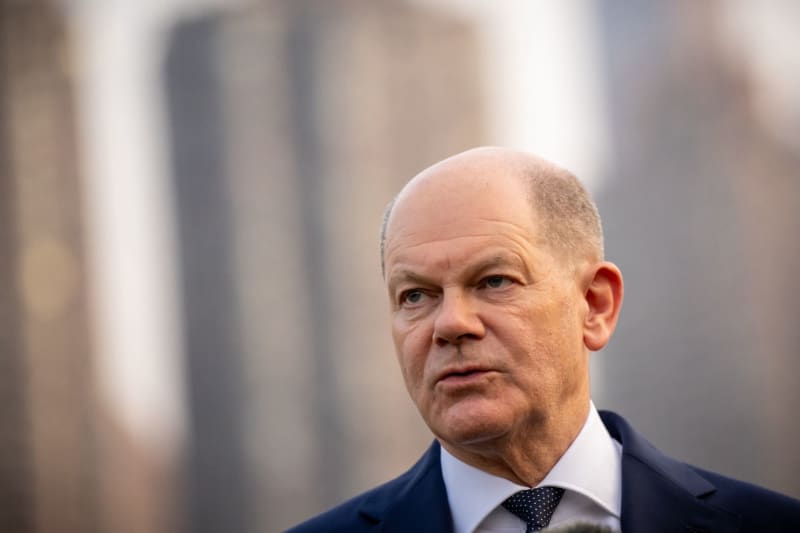German leaders called for de-escalation and urged restraint on Sunday following Iran’s overnight attack on Israel, amid fears Tehran’s move could spark a wider conflagration in the Middle East.
Chancellor Olaf Scholz warned while on a visit to China against any further escalation. “Things must not continue in this way,” Scholz said in Chongqing. “We will do everything we can to avoid further escalation.”
Scholz termed the Iranian attack “absolutely unjustifiable” and added that it was in no way acceptable, understandable or tolerable. “All we can do is warn everyone, especially Iran, against continuing like this,” said Scholz.
He reiterated Germany’s solidarity with Israel, which had every right to defend itself since the terrorist attack by Hamas on October 7 last year.
Scholz’s comments came after Iran mounted an unprecedented aerial attack on Israel that was widely expected after a suspected Israeli strike on the Iranian consulate building in Damascus at the start of the month.
Speaking in Berlin after chairing a crisis meeting, German Foreign Minister Annalena Baerbock called on all the region’s actors to act prudently. “The spiral of escalation must be broken. We have to find an end to the violence together,” she said.
Iran had taken the region “to the edge of a precipice,” she said, condemning the attack in the sharpest terms and assuring Israel of Germany’s full solidarity. Iran should avoid further attacks mounted by its allies, she added.
Germany has urged its citizens to leave Iran.
Baerbock pointed to the “millions of women, men and children in Israel, in Iran and in the entire region, who could not sleep last night for fear.”
President Frank-Walter Steinmeier phoned his Israeli counterpart Isaac Herzog to assure him of German solidarity.
“People in Israel had to seek shelter for hours last night against Iranian drones and missiles. We condemn this attack in the sharpest terms,” Steinmeier, a former German foreign minister, told Herzog, according to a statement from his office.
He also expressed the hope that escalation could be avoided.
The leaders were speaking following the first direct attack on Israeli territory from Iran. An Israeli military spokesman said that 99% of some 300 drones, cruise missiles and ballistic missiles had been intercepted by Israel and its allies, with minimal damage caused.
Iran’s “Operation Truthful Promise” was mounted in revenge for an airstrike on its embassy grounds in Damascus on April 1 in which two generals and others were killed. Israel is believed to have carried out the attack and has not denied responsibility.
Whether Israel will respond to the Iranian attack is not yet clear.
Benny Gantz, a member of the Israeli war cabinet, later said he had spoken to Baerbock about forming a “global united front” to counter emboldened Iranian aggression directly and through its proxies, regionally and globally.
Earlier, he called for the formation of a regional coalition against the Iranian threat.
Gantz also conveyed his appreciation for both Germany’s and Baerbock’s clear stance in support of Israel and the unequivocal German condemnation of the Iranian attack, he said in a post on X, the platform formerly known as Twitter.
Baerbock later called for further sanctions on Iran, saying sanctions were already in play concerning the drones used in Russia’s war on Ukraine.
“I am strongly in favour of extending them to Iran, because we can see how dangerous its actions are at the moment,” she told public broadcaster ARD.
Her comments came after European Commission President Ursula von der Leyen said Brussels would discuss further sanctions on Iran, particularly with regard to Iran’s drone and missile programmes.
The European Union imposed additional sanctions on Tehran in December in a bid to prevent Iran from producing drones used by Moscow in Russia’s ongoing full-scale invasion of Ukraine.
